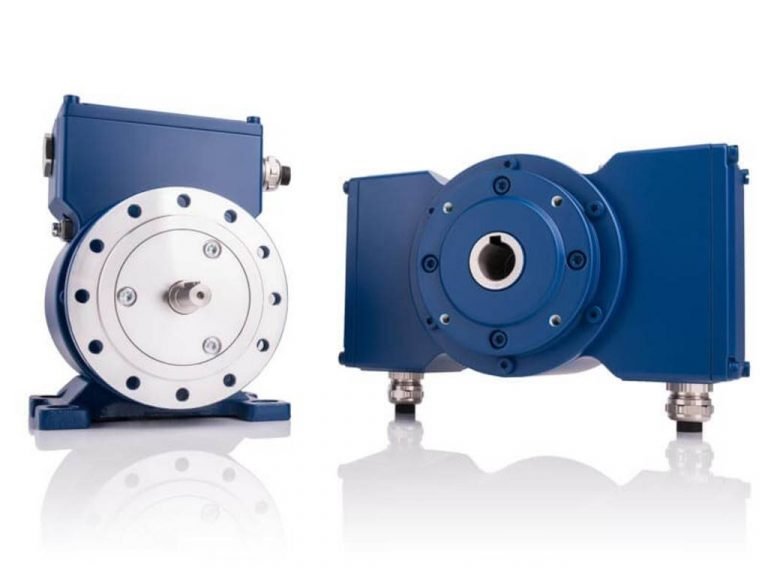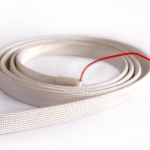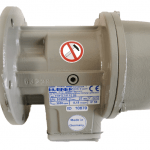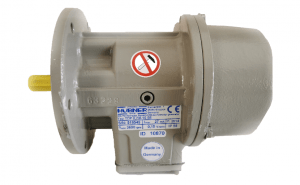Overview of a Motor Encoder
An encoder is an electromechanical device that provides an electrical signal for speed and/or places control. An encoder converts mechanical motion into an electric signal, which is used by the control systems to monitor parameters and adjust if necessary.
The type of application determines the parameters to be monitored. They can include speed, distance and RPM. Closed-loop feedback and closed-loop control systems are terms that refer to applications that use encoders or any other
sensors to control certain parameters.
This article (click to jump section):
- What is a motor encoder?
- How do I specify a motor encoder?
- Motor encoder mounting options
- Types of motor encoder technology
What is a Motor Encoder?
Motor encoders are rotary encoders that are attached to electric motors. They provide closed-loop feedback signals and track the speed and/or location of the motor shaft. There are many options for motor encoder configurations, including incremental, absolute, optical, magnetic, shafted, hub/hollow shaft and others. The type of motor encoder chosen depends on a variety of factors, including the type of motor, the application, and the mounting configuration.
Most Popular Types of Motor Encoders
The type of motor used in the application determines the first motor encoder selection. These are the most popular motor types:
AC Motors Encoders
Because they are both economical and durable, AC induction motors are a popular choice for general automation machine controller systems. Motor encoders can be used to control AC motors’ speed more precisely and require more robust IP, shock, and vibration parameters.
Servo Motor Encoders
Permanent magnet motor encoders, also known as servo motors encoders, provide closed-loop feedback control systems for applications that require greater precision and accuracy. However, they are less robust than AC induction motors. Modular, incremental, or absolute motor encoders are available for servo motors. This depends on the level and accuracy of the required resolution.
Stepper Motor Encoders
Stepper motors can be cost-effective and precise. They are often used in open-loop systems. An incremental motor encoder can be mounted to stepper motors to provide speed control. This will enable the stepper motor system to achieve closed-loop feedback. In some cases, stepper motor encoders are also available to improve the control of stepper motors. They provide precise feedback about the position of the motor shaft relative to the step angle.
DC Motor Encoders
DC motor encoders can be used to provide speed control feedback for DC motors. An armature or rotational rotor is made up of wound wires and rotates within a magnetic field created from a stator. The DC motor encoder is a device that measures the speed of the rotor and provides closed-loop feedback to drive for precise speed control.
Mounting options for motor encoders
Mounting options play a major role in motor encoder selection. The most popular options are:
- Motor encoders with shafts: A coupling method is used to connect the motor shaft and motor encoder shaft. Although the coupling provides mechanical isolation and electrical isolation from the motor shaft, it can increase cost due to the longer shaft required to mount the encoder.
- Hub/Hollow shaft Motor encoders: The hollow shaft encoders attach directly to the motor shaft using a spring-loaded tether. This is a simple method that requires no shaft alignment and can be installed quickly. However, it must be done with care to ensure electrical isolation.
- Bearingless Motor Encoders – Also called ring mount, this mounting option consists of a sensor assembly that is composed of a ring mounted on the motor face and a magnet wheel mounted on its shaft. This mounting option for motor encoders is most commonly used in heavy-duty applications such as paper, steel, and cranes.
Different types of encoder technology
The motor encoder technology required will depend on the application. There are two main types of motor encoder technology:
- Incremental encoders: An incremental motor encoder’s output is used to control the speed of a motor shaft. Learn more about incremental encoder technology.
- Absolute Encoders (Absolute Encoders): An absolute motor encoder’s output indicates the motion and position of the motor shaft. Absolute motor encoders can be found on Servo Motors, where precise positioning is needed. Learn more about absolute encoder technology




